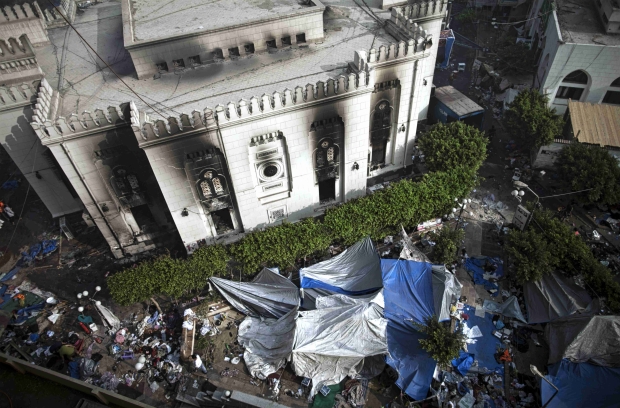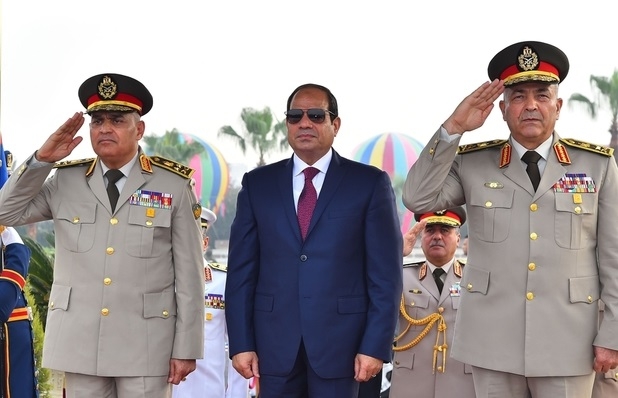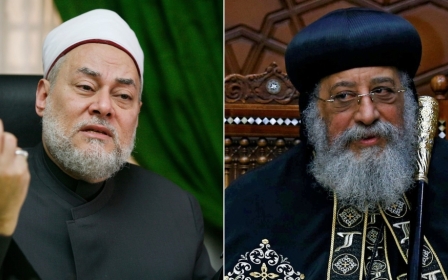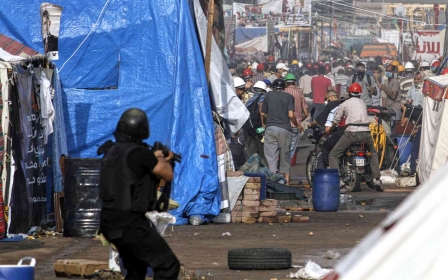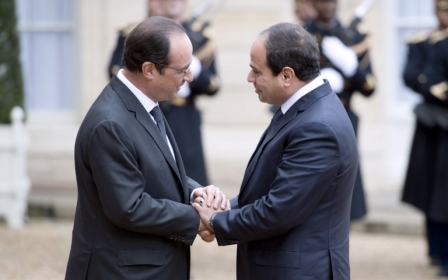Egypt immunity law protects army officers for 'serious crimes': HRW
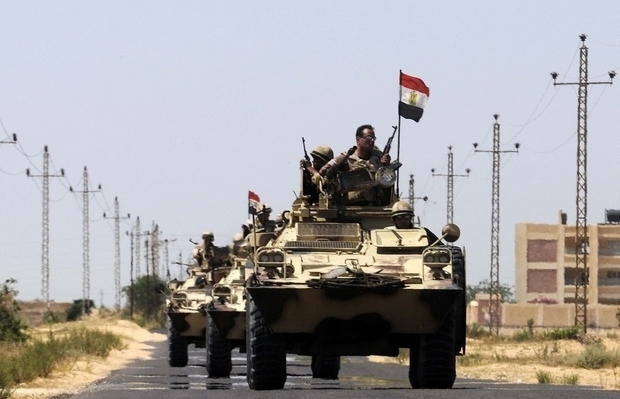
An Egyptian parliament bill granting legal immunity to army leaders is “unconstitutional” and violates “all international standards”, Human Rights Watch has said.
On 3 July, the Egyptian parliament provisionally approved legislation that grants what it termed “senior army officers” exemption from prosecution for any acts committed during the transition period that followed the July 2013 military coup.
Honouring those who sacrificed their lives for this nation is not discrimination in any form
- Ali Abdelal the parliamentary speaker
The bill, proposed by the government and discussed in a closed session by the Defence and National Security Committee in parliament last week, was ratified pending a vote by two-thirds of lawmakers.
But Amr Magdy, a Middle East and North Africa researcher at HRW, said the bill "shows what those army officers fear: they know they have been involved in serious crimes and they fear accountability.”
MPs and the parliament speaker have denied the bill is discriminatory, saying it honours the army for its role in the 2013 removal of president Mohamed Morsi.
“Honouring those who sacrificed their lives for this nation is not discrimination in any form," said Ali Abdelal, the parliamentary speaker, last week.
Magdy said the bill does not simply seek to honour military commanders. Rather, “it reflects their extreme fear of any questioning or the slightest accountability despite the very powerful position they have now,” he told Middle East Eye.
The Egyptian military has been accused of various human rights violations against civilians since the 2011 revolution. The most widely publicised incident has been the Rabaa Massacre, in which more than a thousand anti-coup protesters were killed in one day. Human Rights Watch said the massacre could amount to "crimes against humanity".
How to reassure the military
The law is the first of its kind giving special status to senior military figures since Law no. 35 in 1976, which was passed by the Egyptian parliament to honour the leaders of the 1973 Arab-Israeli war.
Article 1 of the bill grants lifelong "reserve status" to a select number of "senior officers" who will be named by President Abdel Fattah el-Sisi. "Senior officers" in the Egyptian armed forces are those ranked between major general and field marshal, the highest rank in the Egyptian army.
Mahmoud Gamal, a senior research fellow at the Istanbul-based Egyptian Institute for Studies, said Sisi may or may not announce the names of those who will be honoured.
Giving the officers a reserve status for life means that they will not be able to run for president or pose any political threat to Sisi, Gamal said. It also means they cannot run for office without the permission of SCAF.
Sami Anan, who has reserve status, decided to run against Sisi during the presidential election in early 2018, Gamal said, but was arrested on the grounds that he violated the law that required him to seek SCAF permission before running.
The law also seeks to provide protection inside Egypt, as well as outside the country, for senior officers against potential legal action for human rights violations committed during the transitional period.
Sisi wants to reassure top brass officers that none of them will face prosecution for post-coup crimes, whether in Egypt or abroad
- Mahmoud Gamal, The Egyptian Institute for Studies
Article 5 of the bill states that “no investigation or judicial action” may be initiated against senior officers for acts committed from the date of the coup on 3 July 2013 to the first meeting of parliament in January 2016. The bill would also guarantee the officers diplomatic immunity while travelling abroad.
“Sisi wants to reassure top brass officers that none of them will face prosecution for post-coup crimes, whether in Egypt or abroad,” Gamal said.
Gamal said that top officers have been feeling uneasy since the sacking of Sedki Sobhi, former minister of defence, and the exclusion of most of Sisi’s coup allies within the army. Sisi wanted to send them a message that none of them will be threatened, except with the permission of the SCAF which he himself appointed.
“This is a classic carrot-and-stick policy to reward his allies and at the same time warn them that he still has the power to prosecute them," Gamal added.
New MEE newsletter: Jerusalem Dispatch
Sign up to get the latest insights and analysis on Israel-Palestine, alongside Turkey Unpacked and other MEE newsletters
Middle East Eye delivers independent and unrivalled coverage and analysis of the Middle East, North Africa and beyond. To learn more about republishing this content and the associated fees, please fill out this form. More about MEE can be found here.


